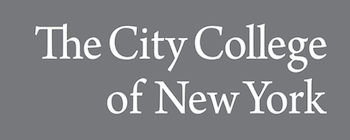The City College of New York
Writing for Engineering
To: Metropolitan Transportation Authority
From: Ahabur Rahman, Mariam Hassan, Sushmita Chakraborty
Subject: Issues with Increasing Fare in the MTA
Date: March 5, 2021
The purpose of this memo is to present the Metropolitan Transportation Authority (MTA) increasing fares with no significant improvements on its infrastructure and to provide possible solutions that could improve the MTA.
Summary
The New York City public transportation is the circulatory system for the global capital of finance and media. And today the 56-year-old system is coming apart. Stalled trains, signal breakdowns, and constant line closures traffics, etc. are complicating the lives of New Yorkers who ride the MTA more than 5.7 million times each day. The MTA, the public agency that runs public transportation is woefully mismanaged, financially irresponsible, and politically captured.
Discussion
On account of the clout of the transit workers union, MTA workers on average make 155 thousand dollars in total annual compensation or more than twice as much as the passengers they serve. The political reaction to the current crisis has been mainly to strategize new ways to fund this troubled operation.
For a city with some of the highest taxes in the country, New Yorkers shouldn’t have to pay so much for substandard service. “New York City and state, as affirmed by Money and other publications, has some of the highest taxes in the country. And, over the last half-century, the subway fares of the state-owned system have gone from 15 cents to $2.75. Half-century and numerous fare increases later, still more are expected”. With fares expected to increase, transportation conditions should improve. The MTA knows many people don’t have any other choice but to use public transportation so they end up taking advantage of the same people keeping them in business.
A majority of MTA riders are from low-income backgrounds. Their only means of affordable transportation is the MTA. Since the start of the pandemic back in March of 2020, the use of MTA’s transportation became crucial in the lives of essential workers. Even with unemployment at an all-time high, the MTA still plans to raise the fare by 4%. This raise will put a huge strain on essential workers who are already stressed about trying to make ends meet and will discourage riders from taking the MTA.
Over the years the trains have become slower and slower. From 2012 to 2017 delays due to unknown causes increased by 1,190%. MTA management blamed this delay on overcrowding. However, this overcrowding came as a result of slow delayed trains that come to the station every few often. With this overcrowding and slow-moving trains, riders shouldn’t have to pay higher fares.
Recommendations
A reason why trains were slowed down each year was due to crashes and safety concerns. However, slowing down trains isn’t the only solution to this. Investing in the operating system and traffic light can improve safety while maintaining a fast and efficient speed for the riders. A fast train means more trains come to the station taking more passengers leading to fewer crowds.
The economy still has not recovered from the pandemics, there millions of people who are still unemployed. One option is to postpone the fare increase until the economy has recovered and people can afford to travel not just for work. Postponing will give people the time to recover faster than it had been increased. Even lowering the fare can be a huge help to low-income families and help the reputation of the MTA.
Roles
Sushmita was our topic supervisor. She helped introduce the topic with the summary, and created the outline for our memo. She was chosen as our topic supervisor because she knew the most about the topic.
Ahbabur was our research director. He led our group research effort by identifying two regular sources and one scholarly source. He also helped come up with the solution to the problems outlined in the memo. He was chosen as our research director because he was best at finding outside sources to aid us in writing the memo.
Mariam was our submission manager. She compiled, formatted, and edited the group work by reading over everyone’s contributions and making sure the memo made sense and fit the formatting guidelines. She was chosen as our submission manager because she is well organized.
Works Cited:
(n.d.). Retrieved March 17, 2021, from
https://go-gale-com.ccny-proxy1.libr.ccny.cuny.edu/ps/i.do?p=AONE&u=cuny_cny&id=GALE%7CA426900750&v=2.1&it=r (SCHOLARLY ARTICLE)
Goldbaum, C. (2021, January 19). N.Y.C. transit Postpones 4% fare Hike, hoping for FEDERAL
RESCUE. Retrieved March 17, 2021, from https://www.nytimes.com/2021/01/19/nyregion/mta-fare-increase.html#:~:text=the%20main%20story-,M.T.A.,passes%20or%20raising%20their%20prices.
Gordon, A., & Reporter, T. (2019, January 31). NYC subway trains move slower today than they
did 10 years ago – and the MTA knows why. Retrieved March 17, 2021, from



